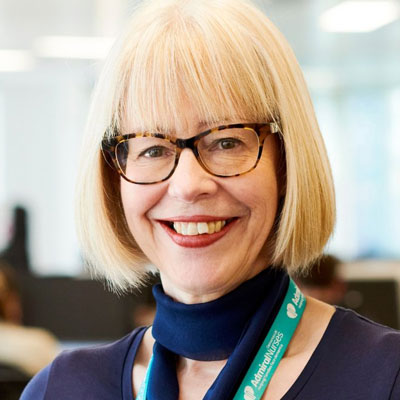
Dr. Hilda Hayo
CEO and Chief Admiral Nurse, Dementia UK
Find out why early diagnosis of dementia matters. Learn about the challenges, support options and steps to getting a diagnosis.
Seeking a dementia diagnosis can be daunting. People often worry about losing their independence, having to stop work or going into care. The truth, however, is that receiving a diagnosis can open various avenues of support.
Why early dementia diagnosis is important
The sooner someone who has the symptoms of dementia receives an accurate diagnosis, the sooner they can start planning for the future.
A timely diagnosis can help the person and their family understand what form of dementia they have, how their symptoms affect them and what they can do to manage them. It also enables them and their family to seek out suitable support such as financial assistance, planning and specialist advice.
The route to diagnosis isn’t always straightforward. Getting a diagnosis of young onset dementia (where symptoms occur before the age of 65) can be particularly challenging as symptoms are similar to stress, vitamin deficiency and menopause in women. A person may be reluctant to see a doctor due to fear or denial, however, it’s important to remind them that a prompt assessment and diagnosis can lead to the right treatment and support sooner.
There are several common challenges
people face both during and after a diagnosis.
Preparing for memory assessment
In some areas, people experience delays due to waiting lists for a memory assessment or diagnosis. However, there are steps you can take while waiting for an assessment.
Keeping a symptom diary is helpful so that key issues can be listed and passed on to the assessor when the time comes. Starting a life story can also be a good way to record the person’s biography, relationships, needs and wishes to enable better communication between health and social care staff.
Accessing specialist support
Receiving a diagnosis of dementia can be distressing for the person and their family and friends because if you love someone living with dementia, then you’re living with it too.
There are several common challenges people face both during and after a diagnosis, so we have created a series of free bite-size guides to complement the support and advice our dementia specialist Admiral Nurses offer through our Helpline, clinics and in other healthcare settings.
Five steps to getting a diagnosis of dementia
- Making an appointment with a GP
- Explaining symptoms and medical tests and checks
- Referral to specialist clinics and specialists
- Memory clinics and tests
- The timeline of a diagnosis and what to do next
Our Admiral Nurses are here to help. Call the free Dementia Helpline on 0800 888 6678 (Monday to Friday, 9am–9pm or Saturday and Sunday, 9am–5pm) or email [email protected]


